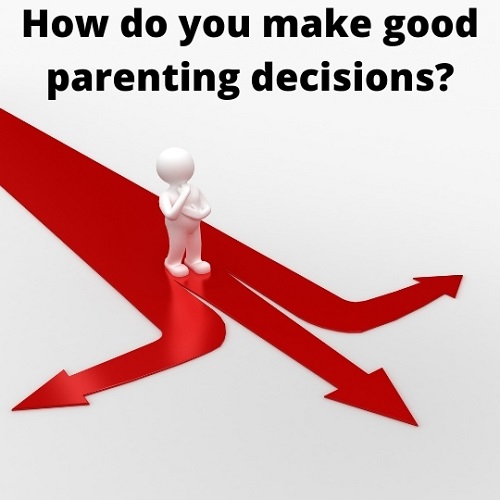Habitually Responding in Helpful Ways to Parenting Situations
by Kathy Slattengren, M. Ed., Priceless Parenting (sign up for monthly parenting newsletter and receive 20+ printable charts for kids and parents)

You are bombarded with making many parenting decisions every day. From deciding what to serve for dinner to responding to your children when they don’t
want to eat what you’ve made, you’re continually assessing situations and making choices.
Primarily these are little responses, small decisions that you make multiple times each day. How much does any single response matter?
Generally not much, but it’s the accumulation of all these little responses that create your family culture.
Assessing Your Current Habits
Step back for a moment and pretend you are an invisible stranger observing your family. What do you see? Where is the most tension? Do you hear a lot of yelling? What happens when the children misbehave? How do disagreements between children get resolved?
When you look at your current family environment, what do you see is working well? If you could change a couple things, what would they be?
The current family environment you are witnessing is the result of your current parenting habits. It’s the little things you do daily without much thought that have created your family atmosphere. Making changes will involve establishing new habits.
Creating Habits for Challenging Situations
When you go to Starbucks, you are expecting a pleasant experience in return for paying a premium price for their coffee. Have you ever noticed that their employees maintain their friendly, cheerful attitude even when it’s hectic? How do they do this?
In his book
The Power of Habit, Charles Duhigg explains "
Starbucks has dozens of routines that employees are taught to use during stressful inflection points. There’s the What What Why system of giving criticism and the Connect, Discover, and Respond system for taking orders when things become hectic."
When things get difficult, Starbucks employees fall back on these routines. Duhigg writes "
This is how willpower becomes a habit: by choosing a certain behavior ahead of time, and then following that routine when an inflection point arrives."
Similarly, while you can’t be prepared for every parenting situation, the healthy habits you’ve developed can guide you through the toughest situations. For example, if you are extremely angry as a result of your children’s behavior, your habit might be to say something like "
I’m too upset right now to talk to you. Let’s both go to our rooms and cool down. We’ll discuss it after that."
Developing Good Parenting Habits
Your habits and your children’s habits interact. If your kids don’t listen to you until you are yelling, you’ve established the habit of talking louder and louder until they finally respond. If your children typically beg for things at the store, this habit has paid off for them.
By considering which of your children’s behavior you’d like to change, you can figure out how your habits are reinforcing their behavior.
Parenting classes and
parenting books are filled with concepts on establishing good parenting habits. Once you gather enough ideas, you can find approaches that work well for both you and your children.
For example, if you want your children to listen to you the first time you make a request then you want to be in the habit of ensuring this happens. So if you ask your child to hang up his jacket and he ignores you, you may decide to place your hand on his shoulder and gently guide him to hanging up his jacket.
Once you’ve established good parenting habits, responding to your children’s behavior becomes much easier. By developing and practicing your behavior, you will be ready to respond in a thoughtful way when your children say things like
- I don’t want to eat that.
- She’s touching me!
- Why do I have to go to bed?
- Can I watch just one more show?
- May I go over to Sam’s house?
You won’t have to spend a lot of time thinking about how to respond - you will just do what you always do in these situations. Whether it’s your children begging you for something at the store or pleading for a later bed time, you’ll know how to respond.
By thinking through your approach ahead of time, you’ll be prepared to set effective limits on your children’s behavior. You’ll know how to respond in ways that are truly helpful, not hurtful. These are habits worth investing in.